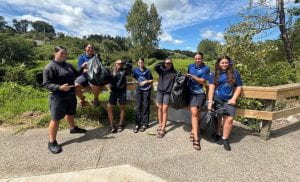In our recent class, we dove into the fascinating world of forces and motion! It was an eye-opening experience that not only made me appreciate how things around us move, but also helped me understand the underlying principles that drive that motion. If you’ve ever wondered about why a ball rolls or how we can measure that rolling, then this post is for you.
The Characteristics of Motion
Motion is fundamentally about change: change in position over time. When studying motion, several key characteristics come into play. We consider speed, velocity, and acceleration. Speed tells us how fast something is moving, while velocity adds direction to that speed. Acceleration, on the other hand, measures how quickly an object’s speed changes.
Understanding these components is crucial for comprehending how forces act on objects. Forces, such as pushes and pulls, can change the state of motion of an object—either speeding it up, slowing it down, or changing its direction!
The Formula Triangle
One of the most valuable tools we learned about in class is the formula triangle for motion, which beautifully encapsulates the relationships between distance (d), speed (s), and time (t). Here’s how it works:
– **Distance (d) = Speed (s) x Time (t)**
– **Time (t) = Distance (d) / Speed (s)**
– **Speed (s) = Distance (d) / Time (t)**

This simple yet powerful triangle allows us to rearrange the formula depending on what we need to calculate. For example, if we know the distance travelled and the time it took, we can easily figure out the speed!
Measuring Motion
To measure motion, we often use tools like stopwatches and measuring tapes. Whether it’s timing how long it takes for a toy car to race down a ramp or measuring the distance a ball rolls across the floor, capturing these movements helps us apply the concepts we’ve learned.
In our experiments, it was fascinating to see how changing the angle of a ramp affected the speed of the toy car. This real-world application allowed us to explore the concepts of acceleration and the effect of gravity, making the learning experience even more dynamic.
Understanding the Different Forces
In our exploration, we also investigated various forces that influence motion. Four primary forces stood out:
Weight: The force due to gravity acting on an object. It’s important to remember that weight can change depending on location—like being on Earth versus the Moon!
Push and Pull: These are forces we encounter daily. Pushing a door open or pulling a suitcase are typical examples of how we interact with our environment.
Friction: This force opposes motion and is often experienced as resistance when we slide objects across surfaces. It’s a crucial force that can either aid or hinder motion depending on the context.
Support Force: Also known as normal force, this acts perpendicular to the surfaces in contact. For instance, when you place a book on a table, the table exerts an upward support force that balances the weight of the book.
Overall, our in-class learning about forces and motion was not only informative but also engaging. By understanding motion, its characteristics, and the forces that influence it, we can better appreciate the mechanics of our everyday world. These principles serve as the foundation for more advanced concepts in physics and engineering, opening doors to exciting fields of study as we continue our educational journey.






